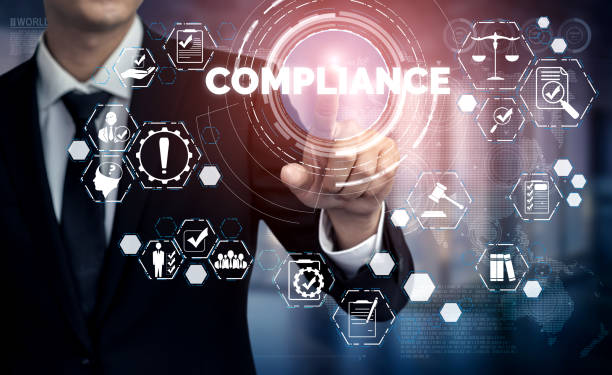Understanding the Core Responsibilities of Compliance Officers
Today, compliance officers are critically important in our complex regulatory landscape. These professionals ensure that organizations like yours adhere to the many legal and ethical standards required of them. And they help mitigate the many risks that arise, left unchecked, that could harm your reputation. Here are their core responsibilities, lifted directly from the corporate compliance officer job description of a 2013 compliance officer posting by Kroll: develop and implement compliance programs; conduct risk assessments; create and update policies and procedures; provide employee training on compliance issues; and, in a good number of organizations, monitor activities for potential violations. (Some organizations also task their compliance officers with investigating compliance breaches.) Now, given the high-profile corporate scandals that have occurred in recent years, you might believe your compliance officers are doing more. And they are. In many ways, the compliance function itself is the organization’s
How Compliance Officers Identify and Mitigate Legal Risks
Identifying potential legal risks and taking proactive steps to address them is a key part of a compliance officer’s work. To do this job well, compliance officers must:
- Conduct thorough risk assessments
- Stay up-to-date on regulatory changes
- Analyze internal processes and controls
- Use data analytics to detect anomalies
- Understand operations with the help of other departments
If these professionals identify risks, they develop and recommend strategies to mitigate them. These strategies usually fall into one of several categories:
- Updating policies and procedures
- Enhancing employee training programs
- Implementing new monitoring tools
- Strengthening internal controls
- Recommending process improvements
This is a proactive approach to risk management.
Key Skills Every Compliance Officer Needs for Risk Management
A diverse skill set that enables them to navigate complex regulatory environments effectively is what allows compliance officers to be successful. Among the number of critical skills they should possess, here are a few.
- Legal/Regulatory Knowledge: In-depth understanding of relevant laws and regulations.
- Analytical Thinking: Ability to assess complex situations and identify key issues.
- Communication: Clear and persuasive communication throughout all levels of the organization.
- Integrity: Strong ethical principles and commitment to doing the right thing.
- Attention to Detail: Meticulous approach to policies, procedures, and investigations.
- Leadership: Influence and guide the organization’s compliance efforts.
- Adaptability: Flexibility to respond to an evolving, regulatory landscape.
Frequently Asked Questions
Q: What is the primary responsibility of a compliance officer?
A: The primary responsibility of a compliance officer is to ensure that an organization functions within the legal and ethical frameworks that it is supposed to, by developing and implementing compliance programs, conducting risk assessments, and promoting a culture of integrity.
Q: How do compliance programs help reduce legal risks?
A: Compliance programs help reduce legal risks by establishing clear policies and procedures; training employees; monitoring activities to look for potential violations; and addressing any issues that are found in a way that keeps them from exploding into serious legal problems that really no one wants to deal with.
Q: What are legal risks anyway, and what are some common ones that organizations face?
A: Legal risks are just what they sound like—being exposed to the possibility of legal action—and some common risks organizations face include data breaches, corruption, bribery, conflicts of interest, insider trading, and other violations of industry-specific regulations.
Q: Why must compliance officers work with internal stakeholders to be effective?
A: Working with internal stakeholders allows compliance officers to understand much better how the organization operates; makes it easier for them to identify potential risks; and helps them implement compliance measures that are in tune with the business’s objectives.
Q: What do you have to do to be a compliance officer?
A: Get a legal/regulatory education, then work in either a legal or a compliance capacity, for a few years.
Q: What skills are essential for compliance officers to have?
A: The skills essential for compliance officers to have include: legal and regulatory knowledge; analytic thinking; strong communication skills; high ordinal intelligence; integrity; attention to detail; and the ability to lead an organization through changes without backsliding.
Read Also: Cybersecurity Laws and Data Protection for Business Safety

